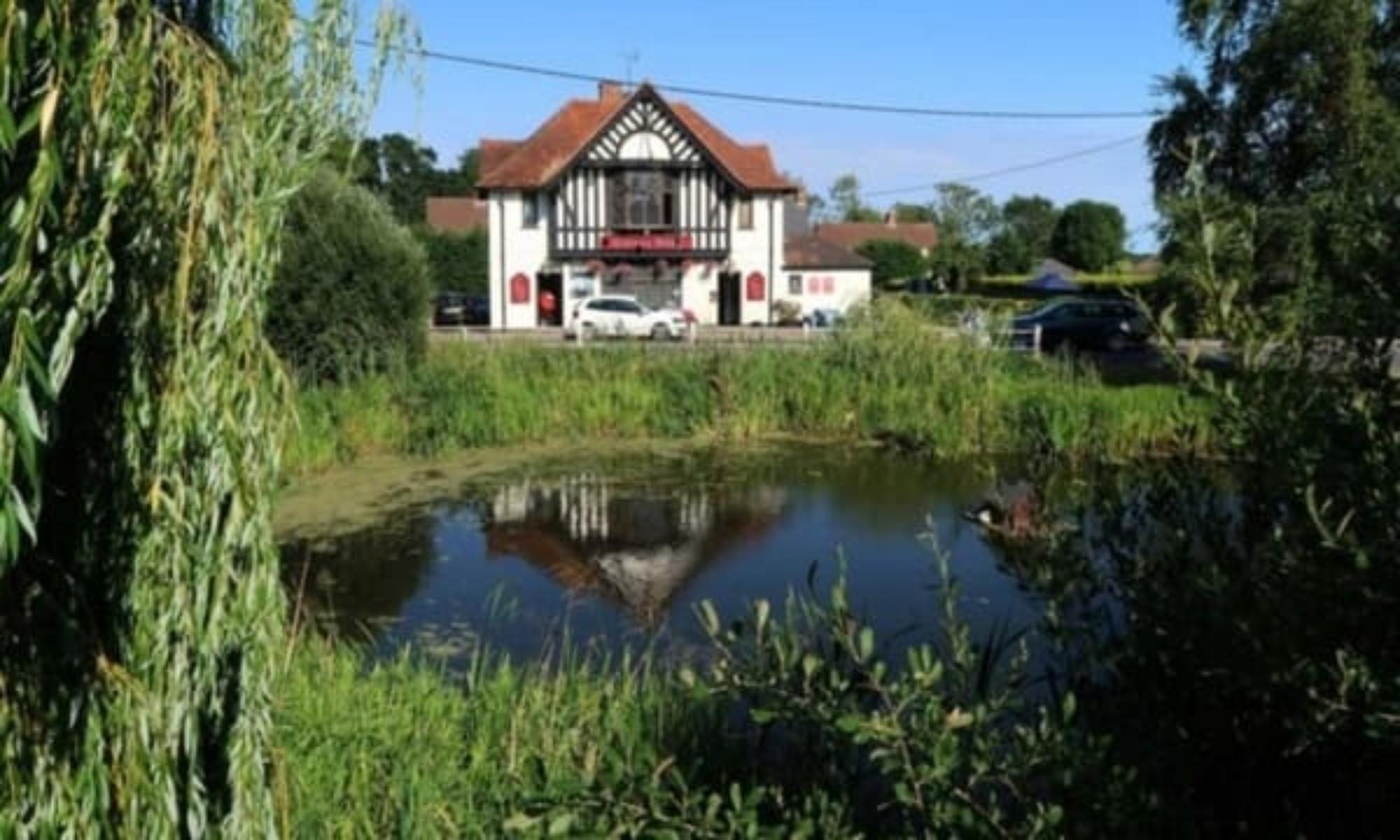 Day 107 since Lockdown
Day 107 since Lockdown
On day 107 we see Essex opening a free bus travel scheme. In other news we have:
- NHS Cadets scheme launched by local Chief Nurse,
- Essex Wellbeing Service to become a fixture,
- Holiday Scams:
- Property Rental Fraud. and
- Some ‘Bus’ music.
 Stop. Swap. GO! campaign launched
Stop. Swap. GO! campaign launched
A new sustainable travel campaign aiming to make it easier for people in Essex to switch from cars to sustainable travel, such as walking, cycling and using the bus, is launched today.
Stop. Swap. GO! is a campaign led by Essex County Council, aiming to drive behaviour change and increase sustainable travel in the county. The project launches today (Monday 6 July) and will feature content across the official Stop. Swap. GO! social media channels, with a new website going live on Wednesday 8 July.
Making it easier to switch
The aim of this campaign is to make it easier and more motivating for Essex residents to switch from car to more sustainable travel choices in the future.
This campaign builds upon temporary work which is now installed in town and city centres across Essex which increase space for social distancing and encourages walking, cycling and bus use.
Share stories online
As part of the campaign, residents from across the county will be able to share their own sustainable travel stories and tips on social media, find further information on local cycle and walking routes, tap in to initiatives and resources, and sign up to take part in a ground-breaking 60-day sustainable travel challenge, where prizes are on offer. The campaign will grow and develop over time.
Partnership
Stop. Swap. GO! will also work in partnership with local bus operators to increase bus use within the county, feeding back information from its community, to make it easier for people to use buses. The campaign will be informed by both the latest research into travel behaviour and behavioural science insights.
Cllr Ray Gooding, Cabinet member with responsibility for Passenger Transport and Essex County Council’s cycling champion, said:
As we come out of lockdown, we have a once-in-a-generation opportunity to greatly improve our air quality and our health as well as the life opportunities for the next generation.
The way we do all these things is by helping people to switch from car travel to active and sustainable travel, walking, cycling and using buses. To create that behaviour change we need a framework for people, communities and businesses to engage with, a space to share experiences, tips and encouragement.
Stop. Swap. GO! will provide that framework, building on Essex County Council’s already forward-thinking strategic travel policies and initiatives. This campaign will allow all residents to share their travel stories and create a community which can work together to improving active and sustainable travel in Essex.
For more information about Stop. Swap. GO! follow the campaign on Facebook and Instagram.
 NHS Cadets
NHS Cadets
A £6 MILLION scheme aimed at getting thousands of young people into the health service will be piloted in Colchester. The NHS and St John’s Ambulance have teamed up to try and recruit and train 10,000 ‘NHS Cadets’ by 2023.
Teenagers aged between 14 and 18 will be eligible for the scheme which will provide them with first aid training, courses to develop their leadership skills, and volunteering opportunities in the NHS – including vital hands-on work experience in hospitals. Colchester has been chosen as one of the places for the project to be piloted along with Hull and London. It is set to be rolled out across England in the coming months.
Similar Impact as Police Cadets
Bosses are hoping the scheme will have a similar impact as the police cadets where youngsters interested in law enforcement have been given a taste of what it is like. Youngsters from marginalised backgrounds are being invited to apply, including those out of education, employment and training or who have never considered a career in the health service.
Challenging Time
NHS chief nurse Ruth May, who is from Colchester, said:
The start of 2020 has been a challenging time for the NHS and its staff who have cared for 100,000 people with Covid-19 who needed specialist treatment and countless more besides, while working to redesign services and even build the Nightingale hospitals.
However, this would not have been possible without the help and support of countless individuals including volunteers who are already making an enormous contribution
Volunteers could and should never replace nurses, doctors and other staff but since the NHS’s foundation they have played a fantastic role in supporting clinicians and assisting patients and this initiative sits firmly in that tradition.
By introducing an NHS cadets programme we are now offering young people a genuine opportunity to get a taste of what it’s like to work in the best health service in the world.
 Essex Wellbeing Service
Essex Wellbeing Service
The Essex Welfare Service, which was launched in quick response to Covid-19 in March and successfully recruited thousands of volunteers to help support vulnerable residents who were shielding, is building on its success by relaunching as the Essex Wellbeing Service from this month.
Almost 9,000 vulnerable people across Essex have received support during the Covid-19 pandemic from specialist providers and from over 3,000 volunteers.
The new Essex Wellbeing Service, which goes live from 1 July, now links all Essex residents (not only the vulnerable) with the practical, emotional and social care support they need as they adapt to ‘the new normal’ of their lives as lockdown eases. Volunteers will continue to have an active role.
The helpline for Essex Wellbeing Service is already live and residents can access services immediately by calling 0300 303 9988. Visit www.essexwellbeingservice.co.uk.
Scams
 Holiday Scams
Holiday Scams
Consumers are being urged to be on the lookout for holiday scams including fake caravan and motorhome listings, refund offers and travel deals, as criminals take advantage of uncertainty around coronavirus travel restrictions and cancellations to target their victims and commit fraud.
With many people looking to book their summer breaks when lockdown ends, the Take Five to Stop Fraud campaign has today published detailed guidance with information on common holiday scams and advice on how to stay safe from them.
Expert Impersonators
Criminals are experts at impersonating trusted organisations such as airlines, travel agencies or banks. They will use a range of methods to approach their victims, including scam emails, telephone calls, fake websites and posts on social media and auction websites. Customers are therefore reminded to always follow the advice of the Take Five to Stop Fraud campaign and take a moment to stop and think before parting with their money or information in case it’s a scam.
Katy Worobec, Managing Director of Economic Crime at UK Finance, commented:
Criminals will exploit the impact of the coronavirus pandemic on people’s holiday plans to commit fraud, whether it’s advertising fake listings for caravans or pretending to offer refunds for cancelled flights.
The banking and finance industry is working closely with law enforcement to crack down on these cruel scams, but we need others to play their part too. It’s important that auction websites and social platforms take swift action to remove fraudulent posts and listings being used to promote holiday scams.
We would urge customers to also be on the lookout for scams and follow the advice of the Take Five to Stop Fraud campaign. Always be wary of any requests to pay by bank transfer when buying goods or services online and instead use the secure payment options recommended by reputable websites.
It’s also important to question any emails, phone calls or social media posts offering refunds for cancelled holidays and not to click on links or attachments in case it’s a scam. Instead, contact organisations directly to confirm requests using a known email or phone number such as the one on their official website.
 Caravan Scams
Caravan Scams
Criminals are taking advantage of growing demand for ‘staycations’ in the UK this summer. They are advertising fake listings for caravans and motorhomes on auction sites and citing lockdown as the reason vehicles can’t be viewed in person. These vehicles are advertised at attractive prices to tempt people into believing they’re getting a good deal; in reality they simply don’t exist or don’t arrive once paid for.
Always Remember
- Be suspicious of any “too good to be true” offers or prices; if it’s at a rock bottom price ask yourself why.
- Do your research before making any purchases. Ask to see vehicles over video if you’re unable to see them in person.
- Use the secure payment methods recommended by reputable online retailers and auction site. Don’t accept requests to pay separately via a bank transfer.
- Where possible, use a credit card when booking holidays over £100 and up to £30,000. With credit cards you receive protection under Section 75.
 Fake Refunds for Cancellations
Fake Refunds for Cancellations
The current travel restrictions have meant thousands of customers have applied for refunds for cancelled flights or holidays. Criminals may exploit this situation to defraud people via:
- phishing emails,
- ‘spoofed’ calls or
- social media posts and adverts
… claiming to be offering refunds from airlines, travel providers or banks. Often emails and posts will include links leading to fake websites; these can be used to steal personal and financial information and can infect a victim’s device with malware.
Always Remember:
- Don’t click on links or attachments in social media posts or emails.
- Question uninvited approaches and contact organisations directly to confirm requests using a known email or phone number.
- Only give out your personal or financial information to services you have consented to and are expecting to be contacted by.
 Cheap Travel Deal Scams
Cheap Travel Deal Scams
Criminals will set up fake websites offering ‘cheap travel deals’ which are used to obtain your money and information. Websites may look similar to the genuine organisation’s but subtle changes in the URL can indicate that it’s fraudulent. These websites may also seem professional and convincing, using images of luxury villas and apartments that don’t exist to convince victims they’re trusted and genuine. These are offered for rent, often at discounted prices and require a deposit to be made which is never returned.
Always Remember:
- Be suspicious of any “too good to be true” offers or prices; if it’s at a rock bottom price ask yourself why.
- Where possible, use a credit card when booking holidays over £100 and up to £30,000. With credit cards you receive protection under Section 75.
- Use the secure payment options recommended by online travel providers and don’t accept requests to pay separately via a bank transfer.
- Read online reviews from reputable sources to check websites and bookings are legitimate.
Access the website you’re purchasing from by typing it in to the web browser and avoid clicking on links in unsolicited emails.
 Property Rental Fraud
Property Rental Fraud
There has been a recent spate of frauds amongst people who are looking to rent a property. The victim is persuaded by the ‘landlord’ to make an advanced payment for a rental property, using the COVID outbreak as the reason the victim is unable to view the property. This is either because the property does not exist or because the criminal does not own it.
Many victims have arrived at the property to meet the ‘landlord’, who simply never arrives. The main way to avoid this scam is to ensure you have done your research:
- Check to see whether the property is advertised elsewhere –these criminals often advertise identical listings but in different areas.
- Property viewings are not prohibited, as long as Government guidelines are adhered to (available here) but if you cannot see the property in person, ask for a video tour (this could be via a method such as Skype or Facetime).
- Be aware of any requests for additional payments or excessive personal details.
- If the deal seems too good, check the price for other properties in the surrounding area. If it seems too good to be true, it usually is.
Remember ABC:
- Never Assume they are legitimate.
- Never Believe they are legitimate.
- Always Confirm using a trusted source of information or by asking friends and family.
Bus Music
Metal Wheels on the Bus
Fairytale of New York Bus Driver Parody (Save this for Xmas)











